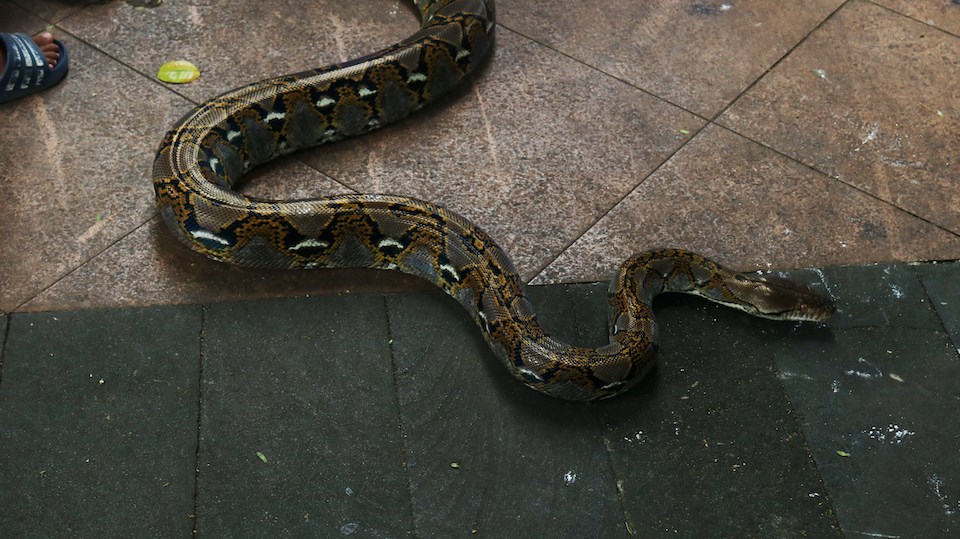If you ever have a large or uncommon animal take up residence in your home, you shouldn't try to handle it on your own.
That's the advice Derek Thorsell, regional manager of Critter Control of Vancouver, tells people who have wild animals in their homes or on their properties. While they might not be problematic if they are passing through (it's nice to see squirrels hop down your fence, or raccoons scamper on by), having one move into your attic or home is a recipe for disaster.
Critter Control focuses on the most humane methods of removal but emphasizes the importance of "exclusion work." This work focuses on preventative measures to keep pests from entering a property.
Thorsell and his team get a wide array of calls from clients facing all types of animal-related conundrums, including one where someone called in regarding an eight-foot python that was lying on the ground beside their home.
"Every once in a while, we get those python calls," he tells V.I.A.
But wayward, exotic snakes don't make up the lion's share of calls to the company.
Leave raccoons to the professionals
Most locals call in about raccoons, skunks, squirrels, and other rodents. Raccoons are typically the most problematic critters because of the damage that they cause; they can also be vicious if provoked.
With sharp teeth and claws and a fierce survival instinct, raccoons have championed their place alongside humans; they don't scare easily and swiftly adapt to new environments. And it's for exactly these reasons that the average civilian shouldn't try to move them out of their homes without the help of a professional.
Even if a homeowner can seal off an entryway, a raccoon may still fight to get back inside, particularly if their young are indoors.
"They come through the attic vent and rip out the insulation there and make a giant mess. If it’s during baby season, and they lock out the mother raccoon, she will rip out whatever she can to get to the baby," Thorsell cautions.
Raccoons can also have rabies and their symptoms might not seem problematic. Rabid animals may even appear friendlier or docile when they have been infected — but they can also behave much differently.
"A symptom of rabies is an 'oddly friendly' animal.” Other symptoms can be unprovoked aggression, appearing drunk, foaming at the mouth, odd chattering sounds, or shrill screams," he notes.
What animals carry rabies in B.C.?
Thankfully, most animals in B.C. are not known to carry rabies. The BC Centre for Diseases Control says bats are currently the "only known reservoir" of the virus in the province.
In 2019, there was a rabies scare after a man on Vancouver Island passed away following a bite from a rabid bat. He was already showing symptoms of rabies when he received treatment at St. Paul's Hospital in Vancouver and it was too late for doctors to reverse the progression of the virus.
Thorsell says it isn't common for most people in Metro Vancouver to have bats in their homes but it is possible. They are more common in rural areas, such as places close to or in the Fraser Valley, such as Langley, Abbotsford and Chilliwack.
"Bats you will notice... they will swarm around your home at night. They feed in the evening," he explains, adding that the small creatures sneak into homes via windows or "small openings on rooflines."
If a colony sets up, there will be a significant amount of droppings, known as bat guano. Critter Control uses devices like bat cones to encourage the animals to leave and then not re-enter the property.
Sometimes the team needs to chase the petite vampires down if other measures aren't successful. Thorsell will get a net and will "go bat catching" if needed.
"We try to protect ourselves as much as we can," he smiles.




